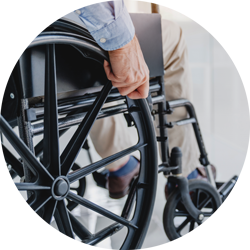Home Management and Care Planning
Senior home management and care planning is a comprehensive approach to meeting the physical, emotional, and medical needs of elderly individuals who may require assistance with daily living activities. This type of planning is crucial to ensure the well-being and quality of life for seniors who wish to age in place or reside in a home-like environment such as assisted living facilities or nursing homes. Here are the key aspects of senior home management and care planning:

1. Assessment and Evaluation
The process begins with a thorough assessment of the senior’s current physical and mental health, functional abilities, and social support system. This evaluation helps in determining the level of care required.

2. Care Options
Based on the assessment, a range of care options is considered. These may include in-home care, assisted living, memory care facilities, nursing homes, or other specialized senior living arrangements.

3. Care Goals
Care planning involves setting specific goals for the senior’s well-being and quality of life. These goals can cover physical health, mental health, social engagement, and overall comfort.

4. Care Team
A care team is assembled, which typically includes family members, healthcare professionals, social workers, and other experts. The senior and their family play a central role in decision-making.

5. Legal and Financial Planning
Addressing legal and financial aspects is a crucial part of senior home management. This includes planning for healthcare directives, power of attorney, wills, and managing financial resources for long-term care.

6. Home Modifications
If the senior wishes to age in place, the home may need modifications to make it more accessible and safe. This could involve installing grab bars, ramps, stair lifts, or other adaptive technologies.

7. Care Services
Depending on the level of care needed, various services may be arranged, such as home health care, personal care assistants, physical therapy, occupational therapy, and more.

8. Medication Management
Proper medication management is essential to ensure seniors receive their medications on time and in the correct doses. This may involve medication organizers or assistance from caregivers.

9. Social and Emotional Support
Seniors often require social and emotional support to combat isolation and loneliness. Activities, companionship, and community engagement are critical components.

10. Regular Assessments
Care planning is an ongoing process, and regular assessments are conducted to monitor the senior’s progress and adjust the care plan as needed.

11. End-of-Life Care Planning
In some cases, end-of-life care planning, including hospice care, may become necessary, and it should be incorporated into the overall care plan.

12. Communication
Open and effective communication among the care team members is essential to ensure that everyone is on the same page and that the senior’s needs and wishes are met.
Senior home management and care planning is a dynamic and adaptable process that evolves as the senior’s needs change over time. It aims to provide the best possible care, support, and quality of life for elderly individuals while respecting their preferences and maintaining their dignity.
